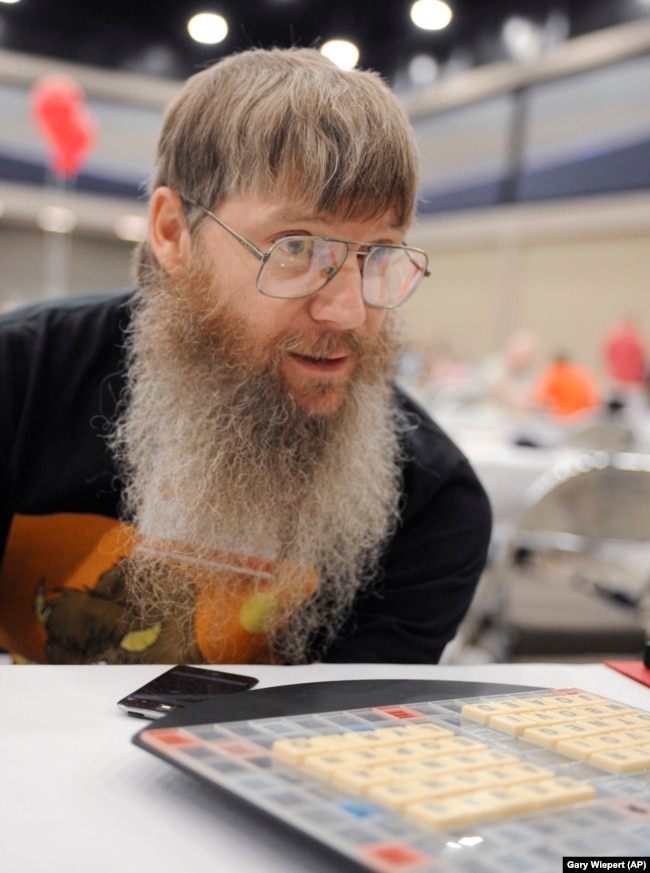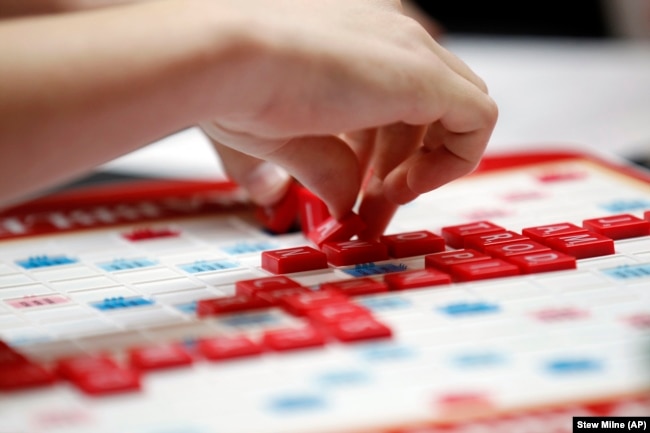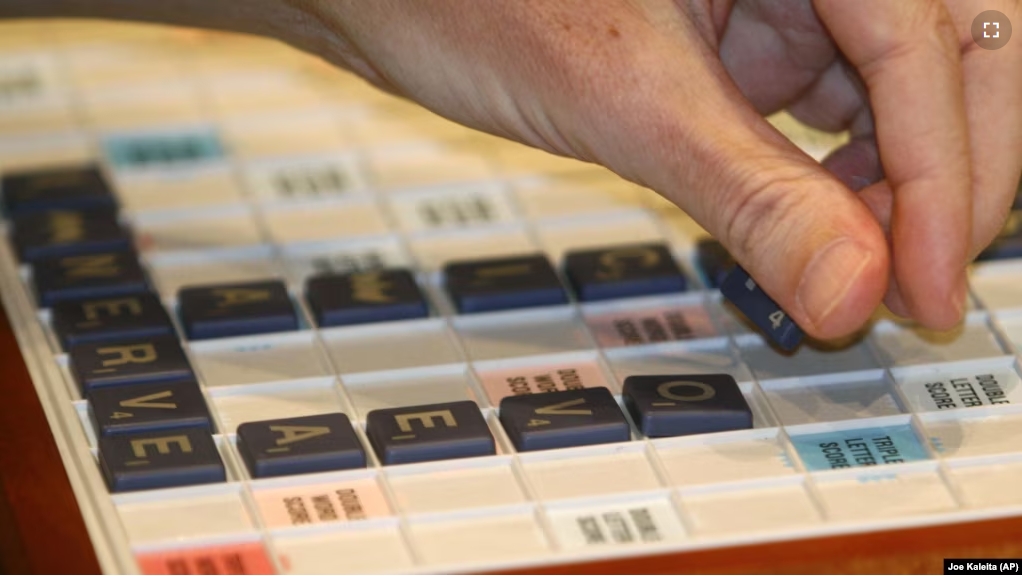A New Zealand man recently won an international Spanish Scrabble competition although he does not speak Spanish.
Scrabble is a board game in which players form words from letters to gain points.
Nigel Richards is a professional Scrabble player. He holds five English-language world championships in the board game. But in November, he won the Spanish world Scrabble championship in Granada, Spain. In the competition, he lost one game out of 24.
Many people are wondering how Richards could win without speaking Spanish.
Liz Fagerlund is a New Zealand Scrabble official and a friend of Richards. She recently told the Associated Press that Richards started memorizing the Spanish language Scrabble word list one year ago.
She said, “He can’t understand why other people can’t just do the same thing.” Fagerlund added, “He can look at a block of words together, and once they go into his brain as a picture he can just recall that very easily.”

In second place was defending champion Benjamín Olaizola of Argentina. He won 18 of his games.
Nothing like the New Zealander’s win had ever happened in Spanish Scrabble, said Alejandro Terenzani, an organizer of the competition.
“It was impossible to react negatively, you can only be amazed,” Terenzani said. “We certainly expected that he would perform well, but it is perhaps true that he surpassed our expectations.”
However, the recent Scrabble competition is not the first that Richards has won in a language that he does not speak.
In 2015, he became the French language Scrabble world champion although he does not speak French. He studied the French language word list for nine weeks. He won the French championship again in 2018.
Richards is known in the world of international Scrabble as the greatest player of all time. He has been playing in competitions for about 30 years. But other players have said his Spanish language victory was notable even by his standards.
Playing Spanish Scrabble required some different methods to win. The wooden pieces, or tiles, used in the word game have different values in English and Spanish Scrabble. Richards also had to consider thousands of additional seven-, eight- and nine-letter words in the Spanish language.

In 2008, Richards was the first player ever to hold the world, U.S., and British titles at the same time. He had to “forget” 40,000 English words that do not appear in the American Scrabble word list to win in the U.S.
His victories are famous in the Scrabble community. Tens of thousands of people have watched and analyzed his games in YouTube videos.
Scrabble does not require players to know the definitions of words. Players only need to know what combinations of letters can be used in a country’s version of the game.
Native speakers have “a huge leg up,” American Scrabble player Will Anderson said in a video explaining Richards’ Spanish win.
In 2010, Richards’ mother, Adrienne Fischer, told a New Zealand newspaper that he was not a great English student in school. He never attended university. And he took a mathematical approach to the game rather than a linguistic one.
“I don’t think he’s ever read a book,” she said, “apart from the dictionary.”
Fagerlund said Richards impressed her when he arrived at his first Scrabble club meeting at age 28. Two years later, in 1997, he rode a bicycle 350 kilometers from Christchurch to the city of Dunedin where he won the New Zealand championship on his first try. Then he rode the bicycle home again.
At the Spanish event, he was shy and modest, organizer Terenzani said. But he happily had his picture taken and spoke with fans who sought him out.
“Although he did so in English, of course,” Terenzani joked.
Richards now lives in Malaysia. He never speaks to reporters. What drives him is a mystery.
“I get lots of requests from journalists wanting to interview him, and he’s not interested,” Fagerlund said.
She added that he does not understand what all the fuss is about.
I’m Anna Matteo.
Charlotte Graham-Mclay reported this story for the Associated Press. Anna Matteo adapted it for VOA Learning English.
________________________________________________
Words in This Story
block –n. a group or a set of something
recall –v. to remember
negatively –adv. in a bad, unhelpful or unhappy way
amazed –adj. to be filled with wonder or admiration
surpass –v. to go beyond something
standards –n. (pl.) a level of expectations involving several qualities or conditions
linguistic –adj. related to languages
leg up –idiom something that helps a person do better at something than other people
impressed –adj. causing a person to remember something about you
shy –adj. unwilling or afraid to talk to other people for some reason
modest –adj. unwilling to bring attention to oneself or to show excessive concern for one’s appearance
fuss –n. a show of too much praise or interest that might not seem real or honest
